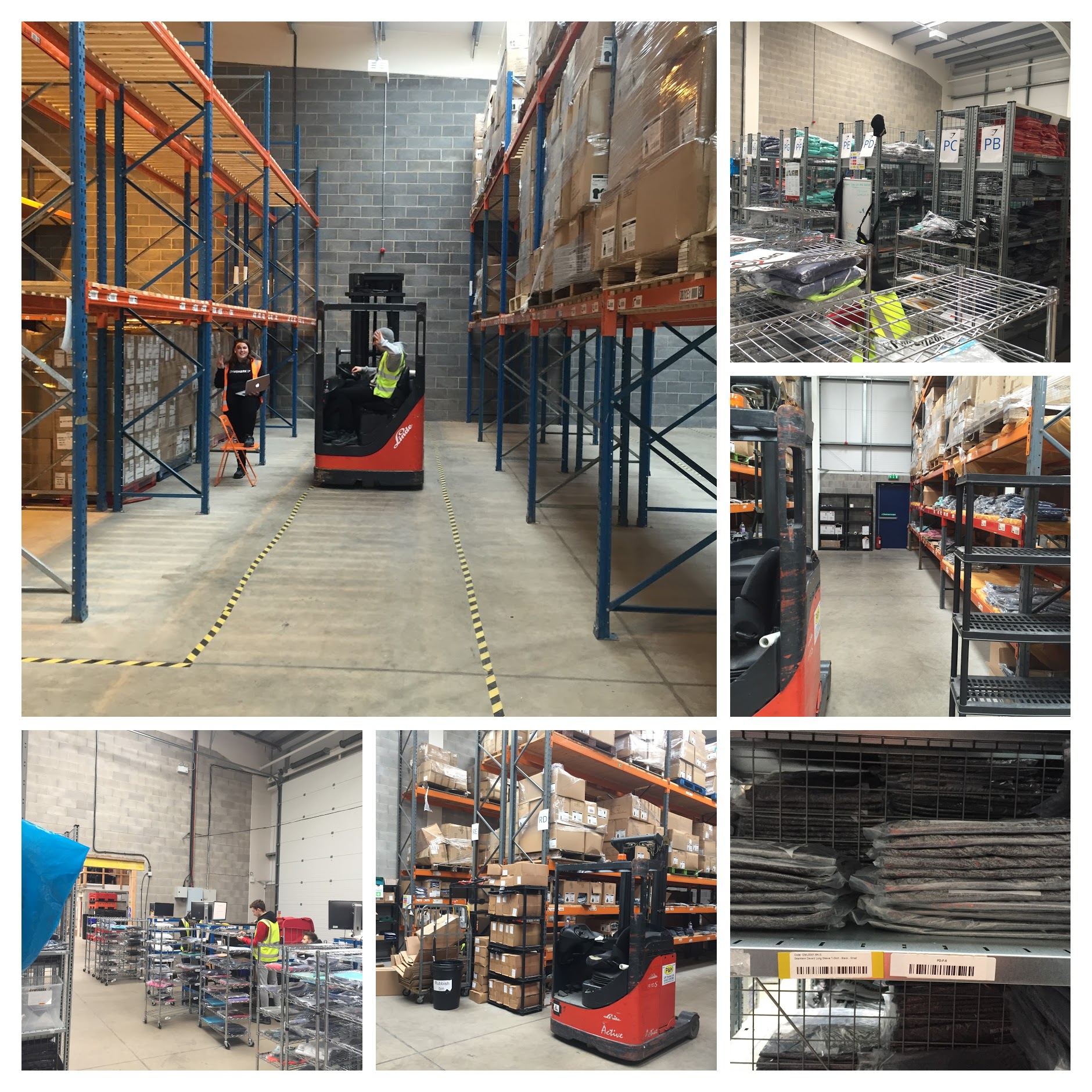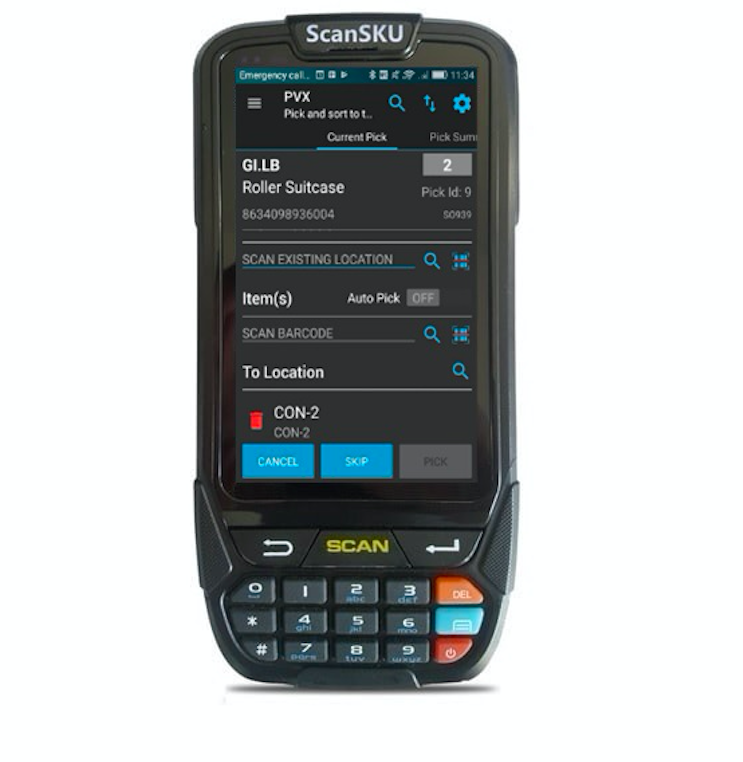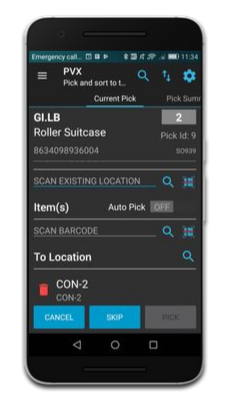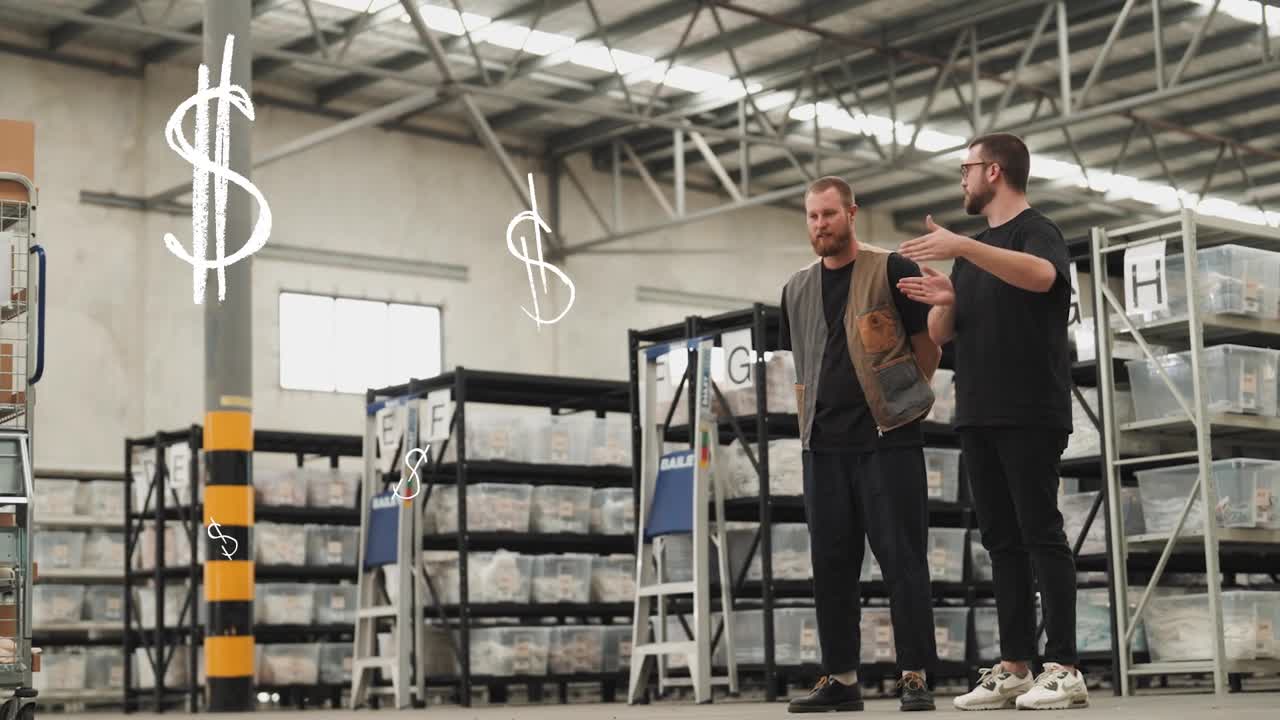Android for Warehouse Management
We’re going to look at one of the most common topics when we speak with brands and retailers looking at moving from a manual-based process, like a paper-based pick and pack, in their warehouse.
Usually, they are at a reasonable scale, doing somewhere between a couple of hundred to 1000 orders a day, and sometimes even, you’ll find larger retailers who have been around for a while with physical retail stores, looking to invest in their ecommerce fulfilllment having grown much more significantly online than offline.
In any case, when we are looking to help with fulfilllment for ecommerce, we take brands through a fairly set process.
- Make sure we’ve got accurate inventory in the warehouse and, therefore, we’ve got accurate inventory online to stop oversells. To do this, we make updates in the system at the point of action with mobile devices.
- Using these devices also crucially allows us to put in barcodes and barcode scanning across the warehouse on all locations and all SKUs. Barcodes, unlike the human eye, don’t make mistakes! So if we get everything labelled correctly and we get goods-in right, when we are picking, we can trust the process, trust the scans and not need to rely on local knowledge
- With that setup, we are primed to unlock your team and enable you to get more orders out. We see how, with increasing proficiency, brands are favouring sales events, limited launches, and other similar tactics that create peaks in demand to drive their sales. For this to succeed, you must scale up the capacity of fulfilllment to match, sometimes even just for a few days. So, by having all the ‘knowledge’ in the mobile devices and not in the heads of the team, you can bring extra people in, and everyone goes faster and more accurately.
With a bit of luck, that’s a fairly straightforward concept to buy into – mobile devices to scan items around in the warehouse are an excellent idea. Obviously, though, there’s a next step… what type of mobile devices will be best?

WHY AN APP VERSUS BROWSER?
Peoplevox has a specific mobile application for mobile devices. We believe that to be the best way forward for ecommerce fulfilllment purposes, and here’s why:
- You need to be fast. Loading screens are not an option. Trying to work on a web browser creates unnecessary tasks like rendering the entire screen on every page load, large data calls to and from the main database, and complete reliance on a WiFi connection… it would be a slow and painful task to pick 100 orders, let alone 1000 in a day.
- It’s accessible and customizable. When you think about the things you use most frequently on your phone – Instagram, Messenger, the news – it’s all app based. They are much easier to access, the teams behind building the apps can create the best user experience, and you can save your settings and have a custom, bespoke set-up for yourself, rather than a one-thing-for-everyone approach through a www. 90% of what happens in a warehouse is done on a mobile device, there are huge productivity gains to be made by making the app as smooth as possible, so our investment is a no-brainer.
Most systems have totally discounted the non-app approach, but it is still one to look out for (and avoid!), especially in ERP Add-Ons.
 Rugged device for Android by ScanSKU
Rugged device for Android by ScanSKU
WHY NOT APPLE / IOS?
On paper, the Apple-like experience sounds excellent: the majority of people are used to it in their daily lives, the UI is often clean and intuitive, a lot of systems out there have followed this path, and often the brands we speak to have Apple at the forefront of their thinking going into a WMS discovery process.
The most limiting factor within the Apple/iOS world is the hardware available, its durability, and its value.
Firstly, you could spend £100 on an iPod touch from 4-5 years ago and get something with a terrible battery life… equally, you could spend upwards of £1000 on a brand new iPhone and get a reasonable to strong battery life.
Next, there is no Apple device with a built-in laser scanner. Some have cameras, which can scan barcodes, and some you have to connect via Bluetooth to a separate scanning tool. Neither of these ways is as reliable or effective as having a device with an in-built laser scanner. Laser scanners are faster than standard mobile cameras, whilst Bluetooth pairing means an added step of processing the data from the scanner, transferring that into the mobile device itself, and then creating the action.
Finally, regarding downloading any app, you’d have to become a part of the Apple App Store ecosystem. When you hear stories about some of the biggest gaming companies in the world having issues and disputes with Apple over App Store listings, monetisation, and so on, you are inclined to stay well clear and look for a free distribution method from financial/marketing implications.
WHY ANDROID?
 Peoplevox Mobile App
Peoplevox Mobile App
Appropriate hardware. When putting in a WMS, the devices the system will run on are crucial to the operation’s success. We aren’t beholden to any one manufacturer. So long as we have a 2D scanner and a barcode to zap, we’ve had clients go with Zebra, ScanSKU, Ulefone, and others successfully. The great benefit of an open operating system like Android is that various manufacturers can develop purpose-built devices, such as robust, rugged ‘mobile Android’ devices specifically for use in warehouses. This gives users a choice and helps to keep prices competitive.
We always ALWAYS encourage our users to ‘try before you buy’ with devices – at the very least, buying one device first, testing, sharing with the team, and getting feedback from them as well as running it through its paces from a systems and utility perspective, before committing to a larger order. Often you can even return the device within 30 or 60 days.
Going back to that one word, ruggedness. It’s often overlooked, but you can always tell a warehouse has gone with the wrong type of devices if you see a graveyard of busted screens, broken devices, and devices that lose battery life fast. Warehouses are not bouncy castles. Things get dropped, smashed, scraped, and grazed, and the team whizzes around to get all those orders out on time. The tools need to be fit for the job; in this case, the mobile devices must be tough. They need to be able to handle more than the odd bump and scratch! Especially when you consider one device being out of action, broken, and the cost of that day’s labour gone with the wind, if you have one warehouse team member rota’d on but unable to carry out their work.
A few big things to it from a technical perspective also make Android the best place for us to develop.
We can store device data locally with Android, meaning if your WiFi connection drops out temporarily, you can continue operating as the device stores the actions; then, when you re-connect, those actions will sync back up with the main database without a hitch. It also means no loading screens or freezes and no lost data!
Finally, our own configurability of the system is advanced but really straightforward. We’re able to create different views for different clients, change some of the processes and flows depending on how the client is set up and how they like to do things, and really tailor the experience of the product to suit each client’s needs, subject to things like item type, size of warehouse, team member capability. On that last point especially, we can arrange to have the mobile app provide full functionality to managers and permanent employees, whilst a temporary worker, for example, could see the most basic of actions, such as ‘pick’, to keep them on task and off any configuration areas. Faster training, easier use, no dramas.






